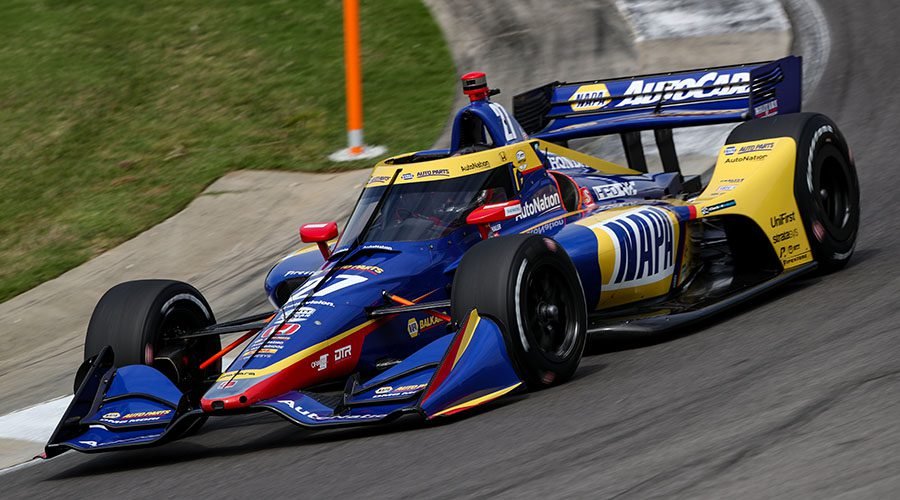The German Grand Prix holds a prestigious place in the annals of Formula 1 history, celebrated not only for its thrilling races but also for its significant contributions to the sport’s development. As one of the oldest races on the F1 calendar, the German Grand Prix showcases a rich legacy intertwined with the evolution of motorsport. Here’s a closer look at its importance in F1 history.
- Historic Roots
The German Grand Prix has deep roots, first held in 1926 at the Avus circuit in Berlin and established a legacy that would evolve over the decades. As one of the original races, it has been part of various motorsport traditions, including the European Championship before F1 was officially established in 1950. This historic backdrop has made the event a cornerstone of the sport’s heritage.
- Iconic Circuits
Over the years, the German Grand Prix has been held at various iconic circuits, each leaving its mark on the F1 landscape.
Key Circuits include:
– Nürburgring: Known for its long and challenging layout, the Nürburgring, particularly the Nordschleife (North Loop), is often regarded as one of the most demanding tracks in the world. It has a storied history and has tested the mettle of many legendary drivers.
– Hockenheimring: This circuit has undergone significant changes throughout the years but is renowned for its high-speed straights and enthusiastic fans. The Hockenheimring has hosted several memorable races, adding to its reputation as a classic F1 venue.
- Legendary Drivers and Teams
The German Grand Prix has been the stage for countless legendary drivers, many of whom have shaped the history of F1.
Notable Figures:
– Michael Schumacher: The German racing icon achieved numerous victories at the German Grand Prix, further solidifying his place in F1 history. His successes at both Hockenheimring and Nürburgring contributed to his reputation as one of the greatest drivers of all time.
– Sebastian Vettel: Another German prodigy, Vettel has claimed multiple wins at both circuits, and his triumphs at the German Grand Prix have fueled national pride and interest in F1 in Germany.
- Dramatic Races and Memorable Moments
The German Grand Prix has produced some of the most memorable moments in Formula 1 history. The combination of fierce rivalries, weather conditions, and strategic battles has created a wealth of stories that fans cherish.
Examples of Dramatic Moments:
– 1989 Race: The notorious crash between Ayrton Senna and Alain Prost at the Nürburgring exemplified the intense rivalry of the era and had lasting ramifications in the championship.
– 2014 Race: This event marked Rosberg’s remarkable home victory after a battle with Lewis Hamilton, showcasing the fierce competition between Mercedes teammates.
- Technical Innovations
The German Grand Prix has been a backdrop for significant technical advancements in the sport. As teams continuously sought to gain a competitive advantage, innovations introduced during this event have shaped the way teams build and develop their cars.
Key Innovations:
– Tire Strategies: The varying weather conditions at the Nürburgring and Hockenheimring have led to strategic tire choices, influencing race outcomes and fostering advancements in tire technology.
– Aerodynamics: The need for high-speed stability on long straights has pushed teams to innovate aerodynamics, leading to developments that have redefined modern F1 car design.
- Cultural Significance
As one of the flagship races in a country known for its automotive engineering excellence, the German Grand Prix carries cultural significance. It reflects the nation’s passion for motorsport and has helped shape Germany’s image as a powerhouse in the automotive world.
Fan Engagement:
The German Grand Prix consistently draws large crowds, showcasing the fanatical support for F1 within the region. The enthusiasm exhibited by German fans creates an electrifying atmosphere at the track, enhancing the overall experience for participants and spectators alike.
- The Future of the German Grand Prix
Despite facing challenges in recent years, including calendar changes and financial uncertainties, the German Grand Prix remains an integral part of Formula 1’s identity. Efforts are underway to ensure its place in future seasons, emphasizing its enduring appeal and historical legacy.
Conclusion
The German Grand Prix is far more than just another race on the calendar; it encapsulates the spirit, challenges, and aspirations of Formula 1 throughout its history. With its iconic circuits, legendary drivers, and memorable moments, the race continues to play a vital role in the development of the sport. As F1 maintains its pulse in the global motorsport arena, the German Grand Prix stands as a testament to the enduring legacy of racing in Germany and its impact on the world of motorsport as a whole.











